In this issue: COVID-19 Research | Announcements
 Welcome to UW Bioengineering’s Innovation & Impact: COVID-19 Special Issue!
Welcome to UW Bioengineering’s Innovation & Impact: COVID-19 Special Issue!
After seven years of leadership and service, Ceci Giachelli is stepping down from the Chair of Bioengineering position. Mike Regnier, who has been in the department since 1997, will serve as Interim Chair while the search for a new Chair is conducted.
As we reflect on how our department has responded to the coronavirus pandemic, several things stand out. Our community is always impressive, but it is surprising to us just how easily our staff, students and faculty pivoted to remote instruction and dealing with research restrictions. They showed striking resilience, not only in their ability to change course midstream, but also in embracing the pandemic as an opportunity to innovate, both in instruction and research.
In instruction, we have new video labs being developed, and the Master’s of Applied Bioengineering program is taking up a remote degree option as a real possibility for the future.
In research, one-third of our faculty have transitioned their platform technologies toward the coronavirus. You’ll read about a sampling of these projects in this newsletter.
Our students set the bar for keeping themselves informed and interacting with each other. One example is the impressive student-published weekly BMES newsletter, bringing news and wellness tips to our cohorts.
I have also seen remarkable selflessness and generosity, with labs donating personal protective equipment to UW Medical Center clinics; students, staff and faculty volunteering in the virology lab for COVID-19 testing; and voluntary furloughs and salary cuts to help mitigate our budget deficits brought on by this pandemic.
Our department is amazingly cohesive, and our culture continues to be one of openness and sharing. This transparency helps us all to work together toward common goals and the greater good. We are proud to be part of the Department of Bioengineering.
With warm regards,
Cecilia Giachelli, Ph.D. Michael Regnier, Ph.D.
Professor and former Chair Professor and Interim Chair
Department of Bioengineering Department of Bioengineering University of Washington University of Washington
COVID-19 Research
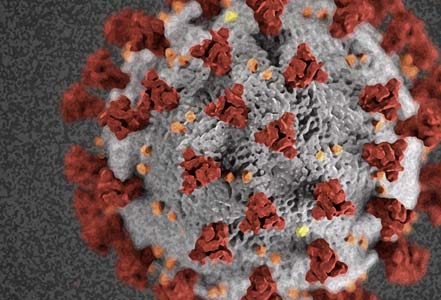 UW Bioengineers pivot to develop coronavirus solutions
UW Bioengineers pivot to develop coronavirus solutions
A number of UW Bioengineering faculty members quickly pivoted and adapted their research to addressing the needs created by the coronavirus pandemic. From developing rapid at-home tests to vaccines and treatments, here is a sampling of some of the ways UW BioE faculty, staff and students are stepping up to help.
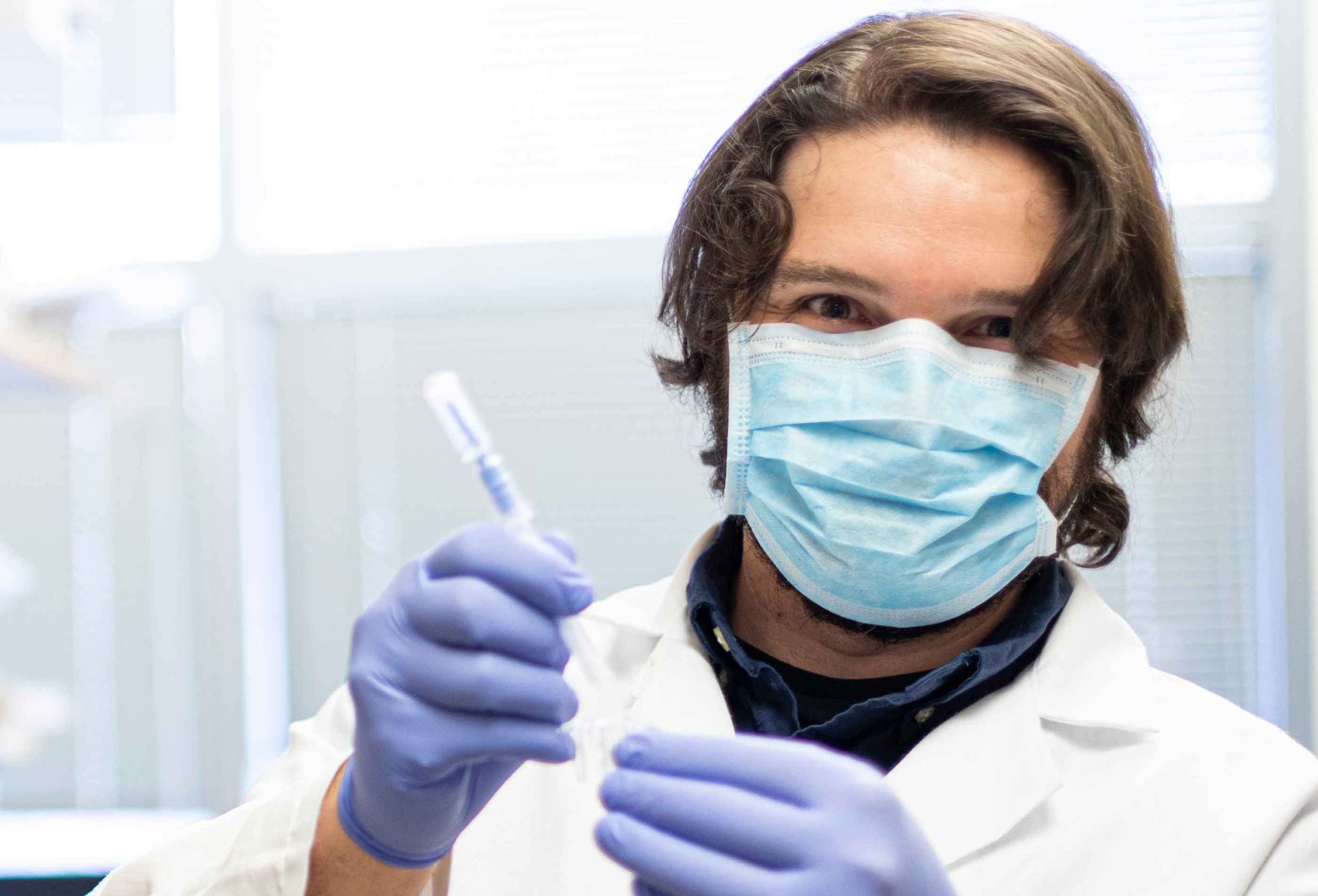 Meeting the need for COVID-19 test kits: pivoting from Seattle Flu Study and developing new rapid tests
Meeting the need for COVID-19 test kits: pivoting from Seattle Flu Study and developing new rapid tests
Dr. Barry Lutz, associate professor, and his lab are working on multiple fronts to support the need for coronavirus testing. Within days, his team shifted from helping with the Seattle Flu Study to COVID-19, and his lab began developing a community and at-home test.
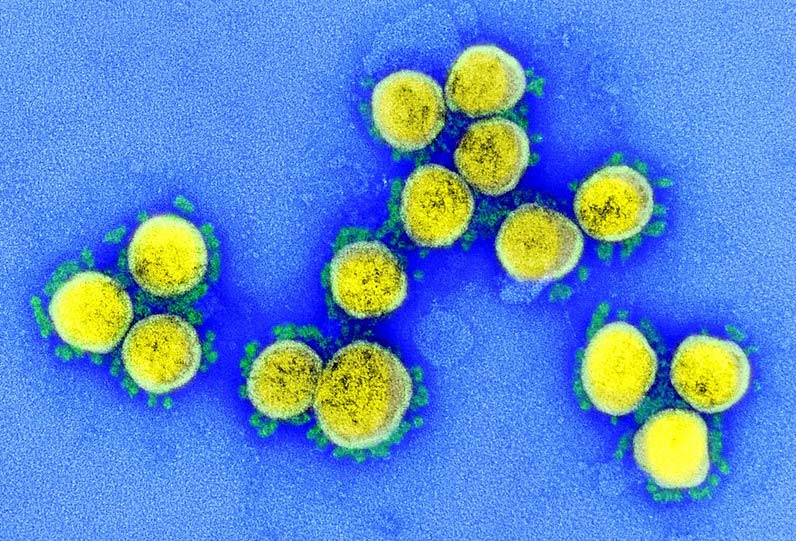
Paul Yager developing rapid COVID-19 tests for the home and clinic
Dr. Paul Yager, professor, and his lab are applying their rapid, low-cost testing technology, called UbiNAAT, to COVID-19 tests, which could be used by untrained people in their homes as well as in health care facilities and low-resource settings around the world.
 How Credible are the COVID-19 Models? Center Aims to Find Out
How Credible are the COVID-19 Models? Center Aims to Find Out
The multi-institution Center for Reproducible Biomedical Modeling, led by Dr. Herbert Sauro, professor, is partnering with top U.S. government agencies to determine how credible several commonly used COVID-19 models are.
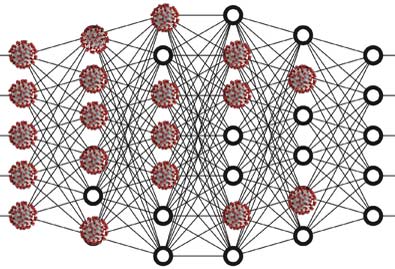 Patrick Boyle Leads Artificial Intelligence Effort to Predict Risk of Heart Complications from COVID-19
Patrick Boyle Leads Artificial Intelligence Effort to Predict Risk of Heart Complications from COVID-19
Dr. Patrick Boyle, assistant professor, and his collaborators in UW cardiology and epidemiology are developing a way to use artificial intelligence to help frontline health care workers predict which COVID-19 patients are at highest risk for heart complications from the illness.
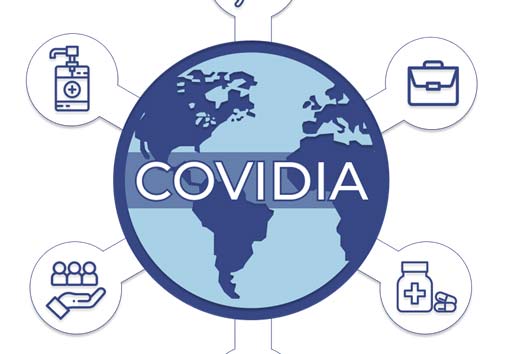 Bioengineering Students Developing Platform to Assess Public Understanding of COVID-19
Bioengineering Students Developing Platform to Assess Public Understanding of COVID-19
A group of UW Bioengineering undergraduates came together this spring to develop a way to promote public understanding of the COVID-19 crisis. Through two design challenge competitions and the aid of mentors, they have refined their idea and are developing a platform called COVIDIA that aims to capture how well the public understands the disease and identify gaps in knowledge.
 Do you have a story to share about your work during the pandemic?
Do you have a story to share about your work during the pandemic?
Send your stories and photos to bioenews@uw.edu.
Announcements
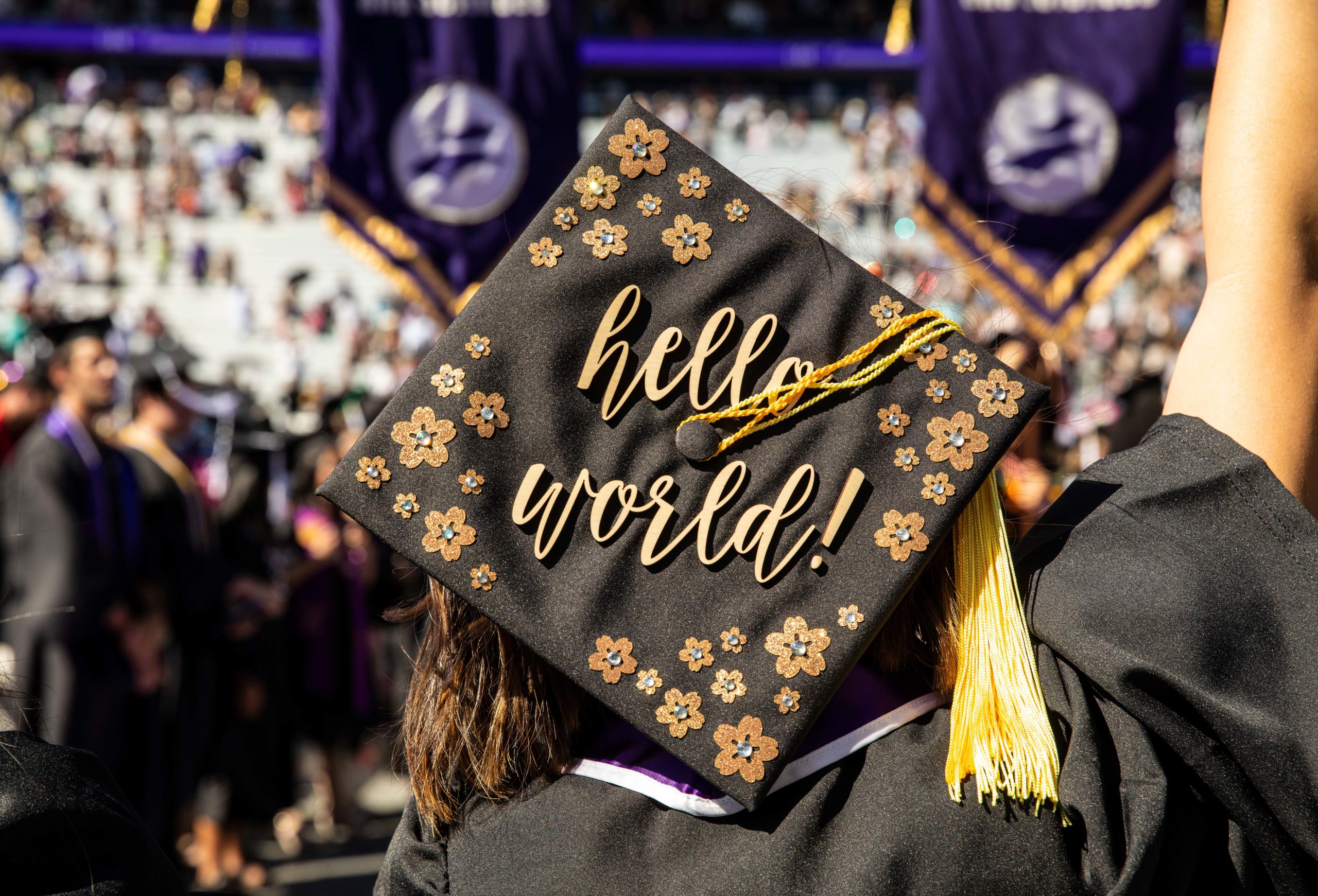 Congratulations, graduates!
Congratulations, graduates!
We are deeply proud of our 135 remarkable students who completed their degrees remotely and graduated this June. Our graduates now include our Master’s of Applied Bioengineering students, as we have waived the summer internship requirement due to the pandemic.
If your company is hiring, please think of UW Bioengineering! Contact: bioeng@uw.edu
 GRE exam optional for all Autumn 2021 Bioengineering Graduate applicants
GRE exam optional for all Autumn 2021 Bioengineering Graduate applicants
With reduced GRE testing globally, the Bioengineering department is waiving the GRE exam requirement for all graduate program applicants for Autumn 2021. The GRE exam was already optional for the Master’s of Applied Bioengineering and online Master’s of Pharmaceutical Bioengineering, and now it also will be optional for our M.S. and Ph.D. programs for the Autumn 2021 admissions cycle.
 Ways to support our students and work
Ways to support our students and work
UW BioE faculty, staff and students have been working to develop innovative solutions to the challenges proposed by the coronavirus pandemic. If you would like to support UW Bioengineering’s research and response to the coronavirus, and to support Bioengineering or UW students in these uncertain times, check out the following giving opportunities:


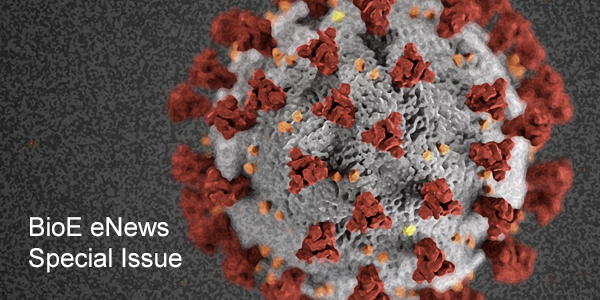
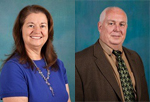 Welcome to UW Bioengineering’s Innovation & Impact: COVID-19 Special Issue!
Welcome to UW Bioengineering’s Innovation & Impact: COVID-19 Special Issue!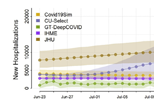
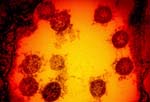 Do you have a story to share about your work during the pandemic?
Do you have a story to share about your work during the pandemic? GRE exam optional for all Autumn 2021 Bioengineering Graduate applicants
GRE exam optional for all Autumn 2021 Bioengineering Graduate applicants Ways to support our students and work
Ways to support our students and work